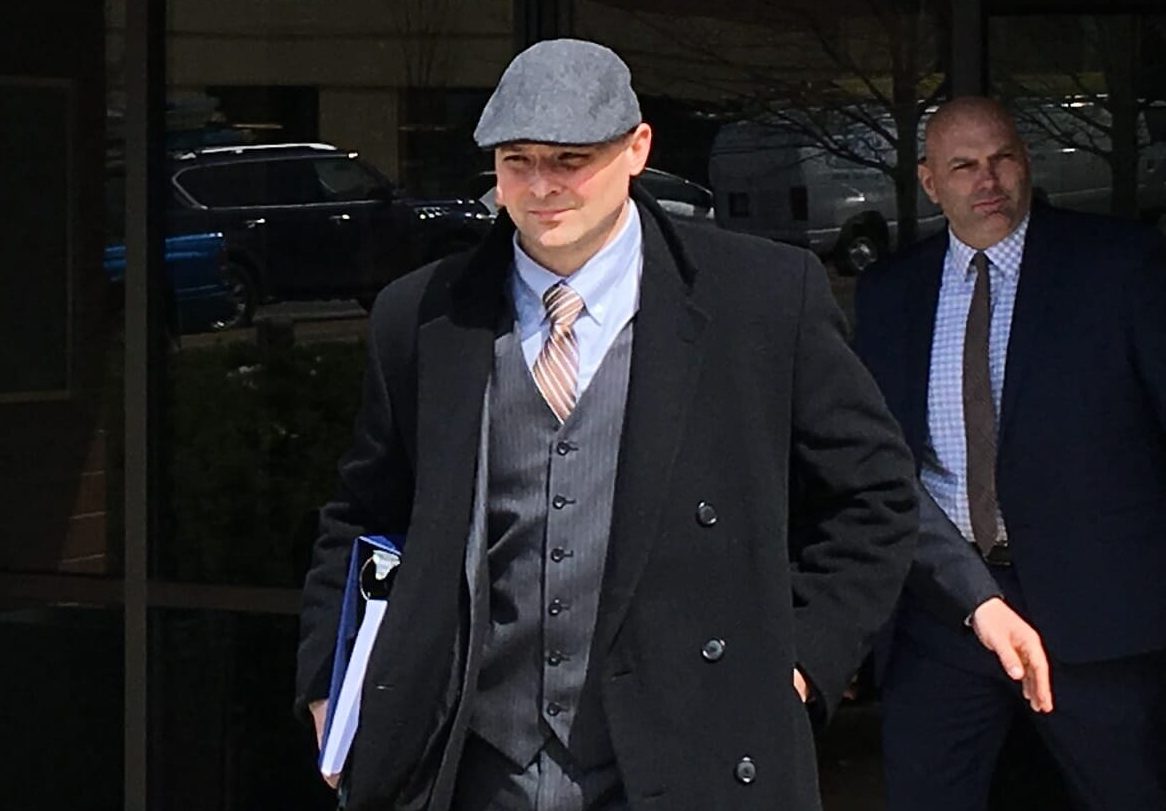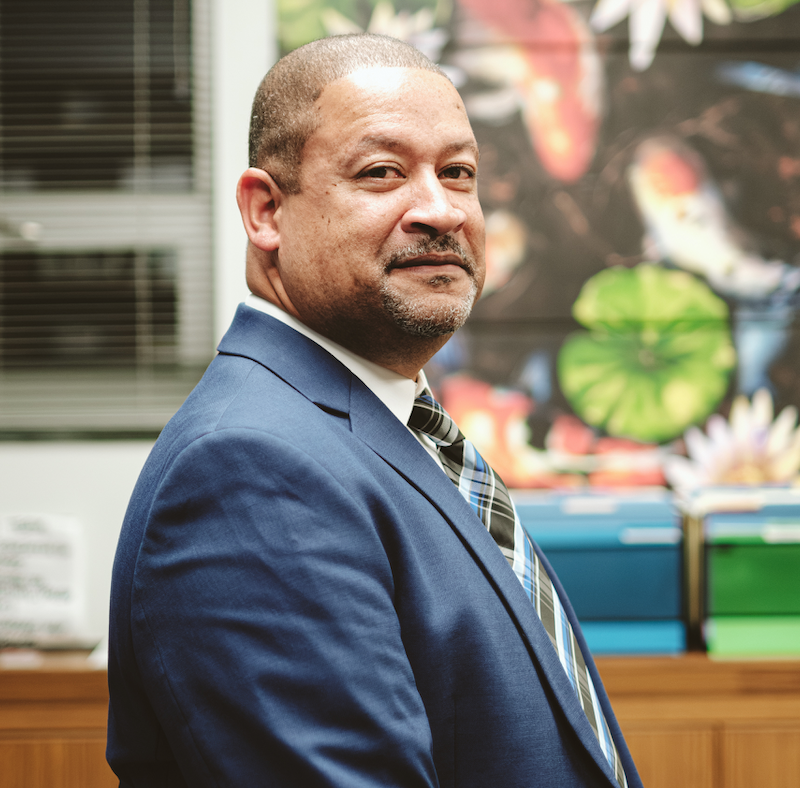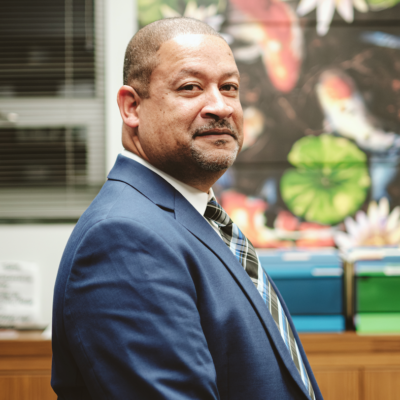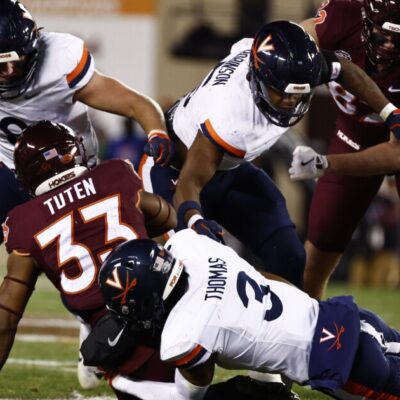The long-running lawsuit accusing an Albemarle police officer of racial profiling was back in federal court—this time for the defendant’s motion to enforce a September settlement agreement, to which seven of the eight plaintiffs mostly agreed.
The suit against Andrew Holmes, now a detective, was originally filed in February 2016. Plaintiffs Bianca Johnson and Delmar Canada said Holmes showed up at their home around midnight on a Friday in 2014 with a warrant to search for a piece of paper—a DMV license suspension that Canada said he’d never received when Holmes pulled him over earlier that week.
Holmes stopped Rodney Hubbard and his mother Savannah Hubbard on U.S. 29 in 2015, and claimed he smelled marijuana, a police tactic for warrantless searches outlawed in Virginia in 2021. He searched Rodney, including his groin, handcuffed him, and held the Hubbards for several hours while searching their car—finding no drugs, according to the complaint.
Plaintiffs Leon Polk, former UVA football player Malcolm Cook, Cory Grady, and Sergio Harris were similarly stopped under dubious pretexts and searched by Holmes, according to their complaints.
On the second day of a March 2018 jury trial, Judge Norman Moon dismissed the case, saying there was no evidence Holmes did not treat other races in the same manner, despite evidence that the sector Holmes worked in 2015 was 68 percent white and 18 percent Black, yet 51 percent of the summons he issued were to African Americans. That same year, 22 percent of the tickets county cops wrote were to Black drivers and 74 percent to white.
The U.S Court of Appeals for the 4th Circuit remanded the case back to Moon in 2019, and it was scheduled for a jury trial in September. Days before the trial, plaintiffs’ attorney Jeff Fogel and Holmes’ attorney Jim Guynn, aided by federal Magistrate Judge Joel Hoppe, reached a settlement agreement.
Guynn testified he would only agree to a “global settlement,” meaning all the plaintiffs signed on or it didn’t happen. Fogel insisted a non-disparagement clause in the settlement was a deal-breaker and that was removed. And the parties agreed to keep the amount of the settlement confidential.
Ironically, Fogel filed a suit in April against the City of Charlottesville for not revealing police misconduct settlement amounts.
Hubbard, the hold-out plaintiff, refused to sign on, and accused Fogel of misrepresentation. Fogel’s motion to be removed as Hubbard’s counsel was granted October 4.
Meanwhile, Guynn filed a motion to force the settlement agreement, and that brought the parties to a December 9 Zoom hearing in U.S. District Court, along with Hubbard’s new Norfolk attorney, S.W. Dawson. Not present at the Zoom hearing: defendant Holmes, whom the county named detective of the year in 2021.
Moon instructed the witnesses not to mention the amount of the settlement unless necessary. However, from testimony and court filings, it appears the county wanted to settle for $35,000 for each plaintiff, while in the first go at mediation in January, Hubbard believed the plaintiffs should receive the “extraordinary amount of $45 million,” said Fogel.
In a motion opposing Fogel withdrawing as his attorney, Hubbard said he would settle for $3.8 million and did not agree to $35,000.
At one point, some plaintiffs agreed to take less so Hubbard and Harris could get $50,000. Cook, now a police officer in Alexandria, testified that he told Fogel that was the lowest they’d take. Both Hubbard and Harris disagreed with that account. And Polk testified that in a Zoom meeting with other plaintiffs, he said he “didn’t think it was fair because everyone was not getting the same.”
Moon did not rule on the motion, and ordered the parties to submit findings of fact and agreements of law by December 16.
The plaintiffs are “frustrated and tired,” says Bianca Johnson. But they’re united in bringing awareness to racial profiling, both here and throughout the country, she says. The suit, now approaching its seventh anniversary, is “for awareness to stop the bad policing that many African Americans, especially men, deal with on a daily basis.”






